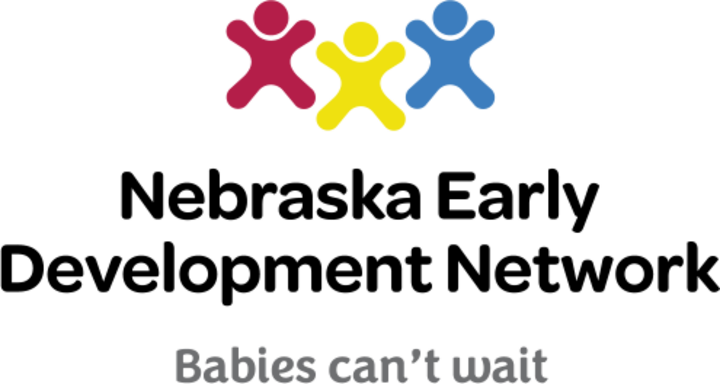IDEA Part C: Birth to Three Services
What Is Early Intervention?
The term “early intervention" is important because research shows that the first three years are the most important time for learning in a child's life. Providing developmental support and services early improves a child's ability to develop and learn. Also, it may prevent or decrease the need for special help later. The goal of early intervention in Nebraska is to “open a window of opportunity” for families to help their children with special needs reach their full potential.

1. Reduces Need for Special Education
Research indicates that approximately 42% of children who receive early intervention services do not require special education by the time they enter kindergarten (Ghandour et al., 2019). This highlights the critical impact of early identification and support during a child’s most formative years. By addressing developmental delays and challenges early, children are better prepared to succeed in general education classrooms without the need for ongoing specialized support. Early intervention not only improves outcomes for individual children but also reduces long-term educational costs and helps schools allocate resources more efficiently.
2. Positive Results for Children
A 2018 meta-analysis found that children who began early intervention before age three experienced an average 17-point increase in IQ scores compared to those who started later. Longitudinal studies reveal that children who begin therapy by age two are three times more likely to thrive in inclusive educational environments compared to those who start later. A longitudinal study showed that early intervention can aid in significant increases in language and educational outcomes.
3. Works with Brain Development
The brain is most adaptable during early childhood, meaning it can be shaped by experiences and interventions. There are specific periods of development when the brain is particularly sensitive to certain experiences, and early intervention can help to capitalize on these critical periods. Early brain development lays the foundation for future learning, behavior and health.
4. Increases Rate of Growth in Key Areas
Early intervention’s evidence-based practice of helping families incorporate intervention strategies into daily routines increases children’s rate of growth in key developmental areas, multiplies the opportunities and effects of intervention.
Nebraska Early Development Network: Ages 0-3 (Part C)
Nebraska’s Early Development Network supports children from birth through three years of age who have special developmental needs. The Nebraska Early Development Network connects families with early intervention services—such as occupational, speech or physical therapy—to support the growth and development of infants and toddlers, while also guiding families through the process. It is a voluntary program and does not discriminate based on race, culture, religion, income level or disability.

The Nebraska Early Development Network provides early intervention services for families with children from birth to age three with developmental delays and/or health care needs and connects families to needed services.

Ages 0-3 (Part C) Resources
Nebraska Department of Education (NDE) Early Childhood Special Education Services
Find resources on Teaching Strategies Gold, Results Matter and Early Childhood Special Education Guidance Video Series.
Baby Navigator
Baby Navigator is a free, online resource from Florida State University's College of Medicine that helps parents identify early signs of ASD and track their baby's development. It features a checklist of 16 early signs of autism, videos and more. The resources can be utilized by parents or early intervention staff to discuss early signs of autism.
Autism Internet Modules
Autism Spectrum Disorder: A Guide for Early Interventionists is a self-paced introductory module provides information about the characteristics of ASD, family perspectives regarding developmental concerns and evidence-based intervention practices. The module is designed to be completed in approximately 120 minutes.
About Autism in Toddlers
About Autism in Toddlers is a web-based course free to the public for families, professionals and anyone interested in learning about ASD. This self-paced course has video clips of over a dozen toddlers with ASD at 18 to 24 months of age. Simply register and log in to learn the following:
- Core features of autism
- Critical importance of early detection and early intervention
- Current information on the prevalence and causes of autism
Autism Focused Intervention Resources & Modules (AFIRM) Toddler Modules
AFIRM for Toddlers is a set of modules developed in collaboration with the Early Childhood Technical Assistance Center for early interventionists working with toddlers, families and early care providers. AFIRM toddler modules provide information and strategies for early intervention providers working with toddlers showing signs of Autism Spectrum Disorder. They cover topics like communication development, social interaction, play skills, behavioral supports and utilizing visual aids to support learning within the natural environment, all tailored specifically for the toddler developmental stage.
Learn The Signs Act Early
Help Your Child Grow and Thrive: From birth to 5 years, your child should reach milestones in how he plays, learns, speaks, acts and moves. Track your child’s development and act early if you have a concern.